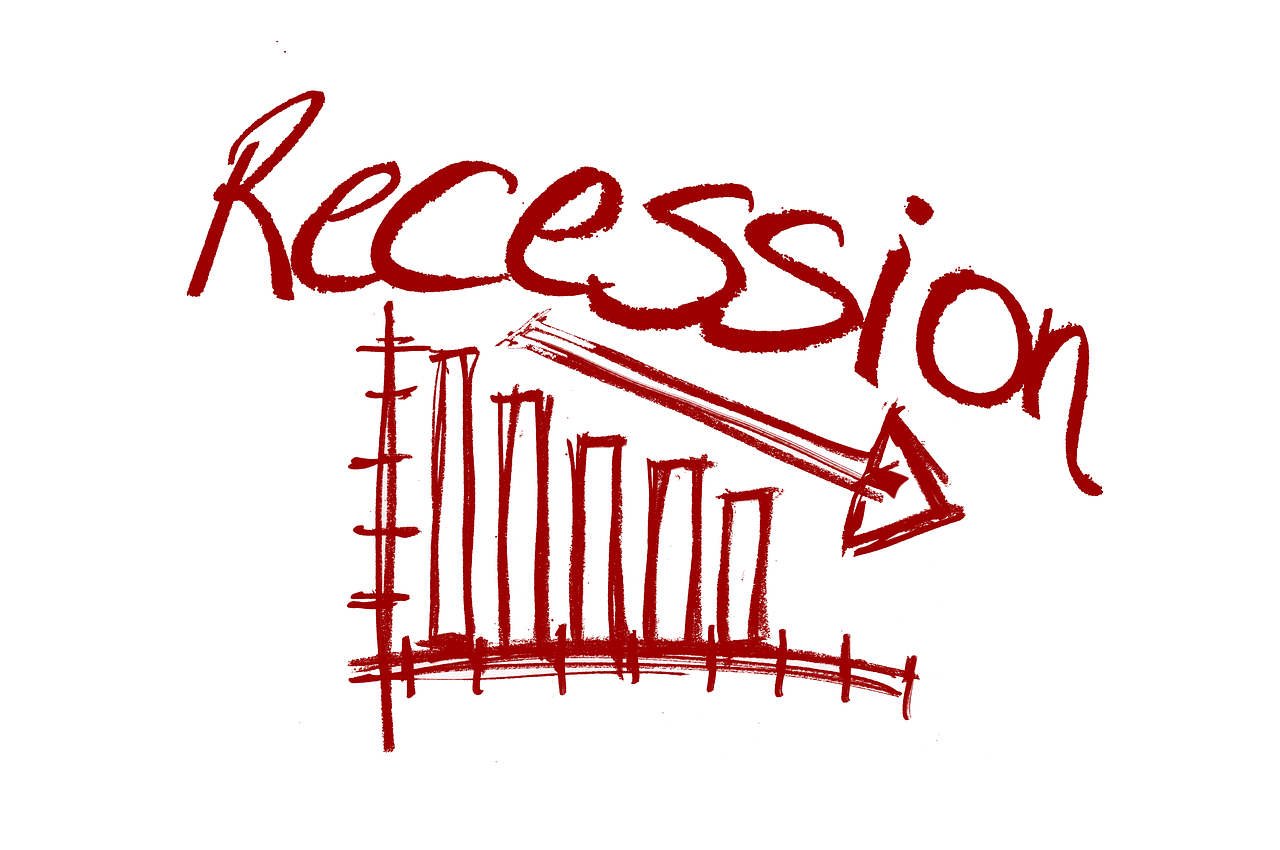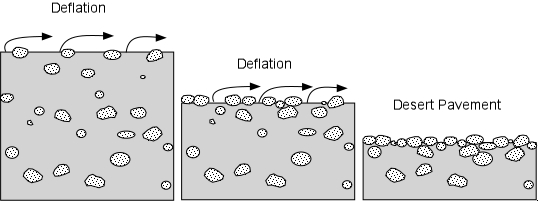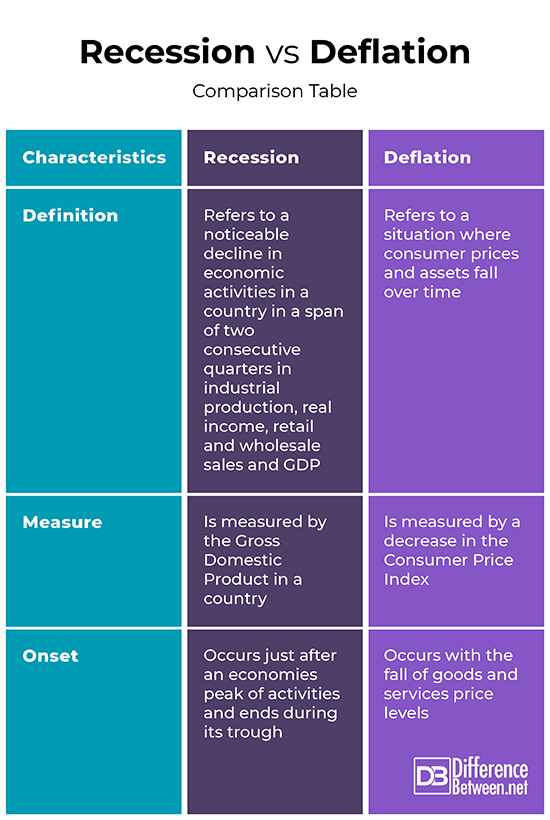Difference Between Recession and Deflation
The state of economic activities is not constant. Changes in pricing, government policies, as well as consumer preference, can negatively or positively affect economic activities. These can cause high levels of unemployment, low productivity, decreased incomes, and lower demand. Both recession and deflation can lead to these drastic scenarios. While the two terms are used synonymously, they have differences as outlined in this article.

Recession
This is a noticeable decline in economic activities in a country in two consecutive quarters in industrial production, real income, retail and wholesale sales, and gross domestic product. A recession occurs just after an economies peak of activities and ends during its trough and is measured by the Gross Domestic Product in a country.
Although most recessions are brief and rare, they have devastating effects on an economy. They are however part of the business cycles characterized by increased unemployment, slow to negative growth, and bank failures.

Deflation
This is a situation where consumer prices and assets fall over time. In the initial stages, this always seems like such a great thing for the consumers as they can get goods at lower prices. A drop in prices makes consumers want lower prices, hence wait for a further commodity price drop. However, this leads to a drop in product demand hence slowing business growth. This results in a recession that comes fewer investments, low incomes, job losses, and declining wages.
Deflation is often caused by
- Slow economic growth
- High-interest rates
Deflation can only be measured by a decrease in the Consumer Price Index. It is important to note that the CPI does not measure sales prices of homes and stock prices which are essential economic sectors. Possible deflation in any of these sectors will then go unnoticed when using the CPI as a measure of deflation.
Similarities between Recession and Deflation
- Both result in low investments, low incomes, high levels of unemployment and low product outputs
- In both, the interest rates are reduced to salvage the situation
Differences between Recession and Deflation
Definition
Recession refers to a noticeable decline in economic activities in a country in two consecutive quarters in industrial production, real income, retail and wholesale sales and GDP. On the other hand, deflation refers to a situation where consumer prices and assets fall over time.
Measure
While a recession is measured by the Gross Domestic Product in a country, deflation is measured by a decrease in the Consumer Price Index.
Onset
A recession occurs just after an economies peak of activities and ends during its trough. On the other hand, deflation occurs with the fall of goods and services price levels.
Recession vs. Deflation Comparison Table

Summary of Recession vs. Deflation
Recession refers to a noticeable decline in economic activities in a country in two consecutive quarters in industrial production, real income, retail and wholesale sales and GDP. On the other hand, deflation refers to a situation where consumer prices and assets fall over time and is measured by a decrease in the Consumer Price Index. Both, however, result in low investments, low incomes, high levels of unemployment and low product outputs.
- Difference Between Profit Center and Investment Center - July 2, 2022
- Difference Between Anti-Trust and Anti-Competition - June 6, 2022
- Difference Between Stocktaking and Stock Control - June 6, 2022
Search DifferenceBetween.net :
Leave a Response
References :
[0]Laxton D & Decressin J. Gauging Risks for Deflation. International Monetary Fund, 2009. https://books.google.co.ke/books?id=KbO4Wk6qPw8C&pg=PA3&dq=Difference+between+Recession+and+Deflation&hl=en&sa=X&ved=0ahUKEwjriIP6xKHoAhXS8uAKHQprDncQ6AEIUjAF#v=onepage&q=Difference%20between%20Recession%20and%20Deflation&f=false
[1]Laxton D & Decressin J. Gauging Risks for Deflation. International Monetary Fund, 2009. https://books.google.co.ke/books?id=KbO4Wk6qPw8C&pg=PA3&dq=Difference+between+Recession+and+Deflation&hl=en&sa=X&ved=0ahUKEwjriIP6xKHoAhXS8uAKHQprDncQ6AEIUjAF#v=onepage&q=Difference%20between%20Recession%20and%20Deflation&f=false
[2]Philipp Bagus. In Defense of Deflation. Springer Publishers, 2014. https://books.google.co.ke/books?id=8Pv9BQAAQBAJ&printsec=frontcover&dq=Difference+between+Recession+and+Deflation&hl=en&sa=X&ved=0ahUKEwjriIP6xKHoAhXS8uAKHQprDncQ6AEIXDAG#v=onepage&q=Difference%20between%20Recession%20and%20Deflation&f=false
[3]Cushman D & Sanderson S. Lessons From the Recession: A Management and Communication Perspective. SUNY Press Publishers, 1997. https://books.google.co.ke/books?id=T0z7H-dGrP0C&printsec=frontcover&dq=Recession&hl=en&sa=X&ved=0ahUKEwjZsOmPxaHoAhWrDWMBHap6A2oQ6AEIMDAB#v=onepage&q=Recession&f=false
[4]Image credit: https://storage.needpix.com/rsynced_images/recession-2530812_1280.png
[5]Image credit: https://commons.wikimedia.org/wiki/File:Deflation.jpg
